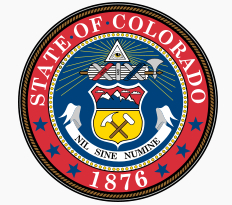Gov. Hickenlooper signs Amendment 64 proclamation, creates task force to recommend needed legislative actions
DENVER — Monday, Dec. 10, 2012 — Gov. John Hickenlooper today signed an Executive Order that makes an “official declaration of the vote” related to Amendment 64. That declaration formalizes the amendment as part of the state Constitution and makes legal the personal use, possession and limited home-growing of marijuana under Colorado law for adults 21 years of age and older.
It is still illegal under state law to buy or sell marijuana in any quantity and to consume marijuana in public or in a way that endangers others.
“Voters were loud and clear on Election Day,” Hickenlooper said. “We will begin working immediately with the General Assembly and state agencies to implement Amendment 64.”
To help inform the upcoming legislative process, the governor today also signed an Executive Order to create a Task Force on the Implementation of Amendment 64. The task force will consider and resolve a number of policy, legal and procedural issues, involving various interests and stakeholders, to implement the new constitutional amendment.
“All stakeholders share an interest in creating efficient and effective regulations that provide for the responsible development of the new marijuana laws,” the Executive Order says. “As such, there is a need to create a task force through which we can coordinate and create a regulatory structure that promotes the health and safety of the people of Colorado.”
The Task Force will be co-chaired by Jack Finlaw, the Governor’s Chief Legal Counsel, and Barbara Brohl, the Executive Director of the Colorado Department of Revenue. There will be 24 total members:
Rep. Dan Pabon, appointed by the incoming Speaker of the House;
Sen. Cheri Jahn, appointed by the incoming President of the Senate;
Rep.-elect Dan Nordberg, appointed by the incoming House Minority Leader;
Sen.-elect Vicki Marble, appointed by the incoming Senate Minority Leader;
David Blake, representing the Colorado Attorney General;
Kevin Bommer, representing the Colorado Municipal League;
Eric Bergman, representing Colorado Counties Inc.;
Chris Urbina, the Executive Director of the Colorado Department of Public Health and Environment;
James Davis, the Executive Director of the Colorado Department of Public Safety;
John Salazar, the Colorado Commissioner of Agriculture;
Ron Kammerzell, the Senior Director responsible for the Colorado Medical Marijuana Enforcement Division;
Christian Sederberg, representing the campaign to pass Amendment 64;
Meg Sanders, representing the medical marijuana dispensary and cultivation industry;
Craig Small, representing marijuana consumers;
Sam Kamin, a person with expertise in legal issues related to the legalization of marijuana;
Dr. Christian Thurstone, a person with expertise in the treatment of marijuana addiction;
Charles Garcia, representing the Colorado Commission on Criminal & Juvenile Justice;
Larry Abrahamson, representing the Colorado District Attorney’s Council;
Brian Connors, representing the Colorado State Public Defender;
Daniel Zook, an at-large member from outside of the Denver area;
Tamra Ward, representing the interests of employers; and
Mike Cerbo, representing the interests of employees.
The co-chairs of the Task Force expect to form working groups, chaired by one or more members of the Task Force and comprised of persons with subject matter expertise, to aid in the group’s work.
Issues that will be addressed include: the need to amend current state and local laws regarding the possession, sale, distribution or transfer of marijuana and marijuana products to conform them to Amendment 64’s decriminalization provisions; the need for new regulations for such things as security requirements for marijuana establishments and for labeling requirements; education regarding long-term health effects of marijuana use and harmful effects of marijuana use by those under the age of 18; and the impact of Amendment 64 on employers and employees and the Colorado economy.
The Task Force will also work to reconcile Colorado and federal laws such that the new laws and regulations do not subject Colorado state and local governments and state and local government employees to prosecution by the federal government.
“Task Force members are charged with finding practical and pragmatic solutions to the challenges of implementing Amendment 64 while at all times respecting the diverse perspectives that each member will bring to the work of the task force,” the Executive Order says. “The Task Force shall respect the will of the voters of Colorado and shall not engage in a debate of the merits of marijuana legalization or Amendment 64.”
All meetings of the Task Force and any working groups will be open to the public. The Task Force will also endeavor to solicit public comment as part of its consideration of the policy, legal and procedural issues that need to be resolved to implement Amendment 64.
The Task Force will hold its first meeting at noon Dec. 17 in the Department of Revenue Gaming Conference Room, 17301 W. Colfax Ave., Suite 135, in Golden.
The Task Force is expected to report its recommendations and findings to the Governor, the General Assembly and the Attorney General no later than Feb. 28, 2013, unless it is either earlier terminated or extended beyond that date by further Executive Order.
Hickenlooper and Colorado Attorney General John Suthers sent a letter on Nov. 14 to U.S. Attorney General Eric Holder seeking clarity on the federal government’s position related to Amendment 64. Colorado has not yet received a response.
“As we move forward now with implementation of Amendment 64, we will try to maintain as much flexibility as possible to accommodate the federal government’s position on the amendment,” Hickenlooper said.
Copies of the two Executive Orders signed today by the governor are attached to this press release.
###



We welcome all thoughtful comments, but please abide by our commenting rules